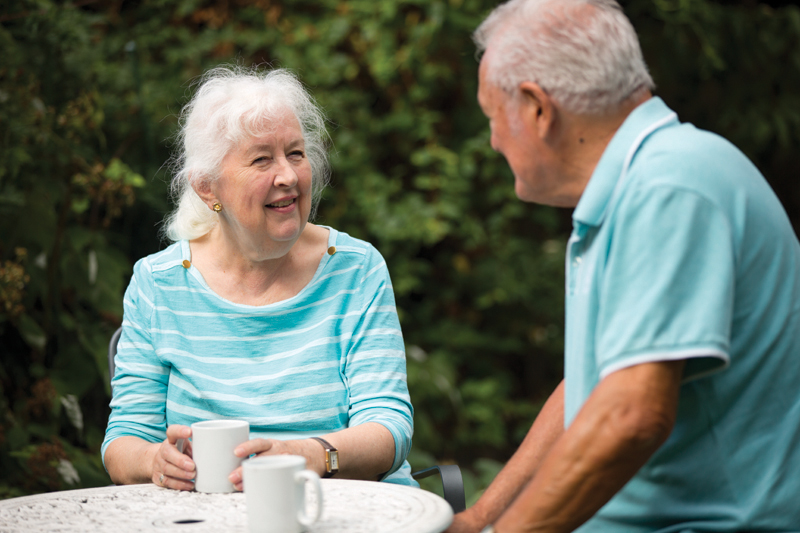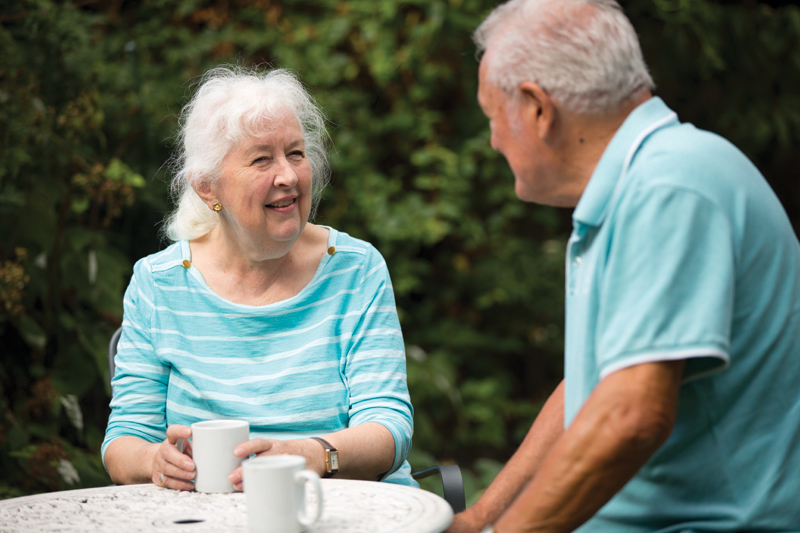Blog: Comment about a report into relationships in later life
Date 14.02.2018
14.02.2018
Firstly can I say, happy Valentine’s Day everyone!
I’m currently away from my loved ones completing my Churchill Fellowship here in a very chilly Boston, USA. I woke up this morning to several messages all pinging the same BBC news article to me.
Several of my friends and colleagues had seen the recent reports about the recent Independent Age study into Relationships In Older Life and thought it would be of interest to me – and it is!
My research and Fellowship work has focused on sexuality and intimacy in ageing and for some time I have felt a bit of a lone voice as I suggest that ‘sexual retirement’ is not inevitable and that, for most people, retirement actually serves as a starting point to rekindle romance without the worry of children or the stress of a job. So the more we begin to recognise the importance of sexuality and intimacy at every stage of life the better.
When older people find they need to move into supported living environments their private lives are suddenly much more public. Having carers come to your home alters the way you behave in your domestic space, where intimacy plays out. Now, imagine that you have very, very little privacy – that’s what its like living in a residential home.
Please note however that this does not preclude romance; care home staff report that sexual behaviour is evident in most care homes, we just don’t talk about it much. I really hope that by the time I need residential care which, as I prepare to celebrate by 50th birthday no longer seems that far off, that those around me will not stop me from being intimate with those I love.

Getting older doesn’t mean all of you has to retire. Image courtesy of Independent Age .
A more serious aspect of this report is around good sexual health. It has been previously reported that the Sexually Transmitted Infection (STI) rate in the over 55’s has increased 10 fold in recent years. For those over the age of 70 who grew up in a time when sex education was finding stuff out from a bloke down the pub, the biggest concern was pregnancy. For most working class families extra mouths to feed was an economic burden which was difficult to manage.
This was pre-contraceptive pill days, so no popping to the clinic for an implant. But this history is important as it means that if, when young, you were mostly afraid of pregnancy when you had sex, post-menopausal women have nothing to worry about.
STI risk is often not considered and because, as the report says, all sex ed is geared to the young we are not getting the word out. I have seen reports that claim that gonorrhea and syphilis rates have increased by 25% in the over 55’s. A sobering thought when there are only so many types of antibiotic available to fight such infections. So as much as I’m delighted that this report is acknowledging and affirming the importance of sexuality and intimacy in older age, be careful out there folks.
I hope this report gathers momentum and starts to challenge the assumptions that everyone is sexually retired at 65. Intimacy and a sense of connectedness is important at whatever age, but I would argue particularly when you are older. We know that research is highlighting the sense of loneliness and isolation which many older people feel. By acknowledging the importance of intimacy for older people and not mocking it or making people feel deviant in some way, perhaps we can recognise an aspect of wellbeing which is little discussed.
Dr Jane Youell is a freelance Chartered Psychologist specialising in the relational wellbeing of those living with dementia. You can find out more about her work on janeyouell.com or by emailing her: jyouellconsultancy@gmail.com